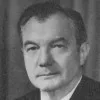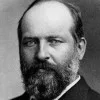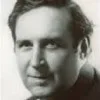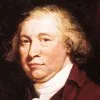We owe more money than any Nation in the World, and we are LOWERING TAXES. When is the time to pay off a debt if it is not when you are doing well? […] Will you tell me any good reason (OUTSIDE OF POLITICS) why Taxes should be lowered this year? I know it’s good politics to lower taxes. In fact, did you ever figure it out Taxes is all there is to Politics? I bet you tomorrow if you started a Political Party and had this as its platform , “No taxes are to be paid at all. We will borrow money on our National resources for all current expenses. Remember the Slogan. No Taxes as long as we can borrow.” Well I will bet you you would have the biggest Political party in America.
Will Rogers (1879-1935) American humorist
Column (1926-01-10), “Weekly Article”
(Source)
Present in an elided form in his The Autobiography of Will Rogers (1949) [ed. Donald Day].
Quotations about:
taxation
Note not all quotations have been tagged, so Search may find additional quotes on this topic.
The King’s cheese is half wasted in parings: But no matter, ’tis made of the peoples milk.
Benjamin Franklin (1706-1790) American statesman, scientist, philosopher, aphorist
Poor Richard (1735 ed.)
(Source)
The whole trouble with the Republicans is their fear of an increase in income tax, especially on higher incomes. They speak of it almost like a national calamity. I really believe if it come to a vote whether to go to war with England, France and Germany combined, or raise the rate on incomes of over $100,000, they would vote war.
The United States has a system of taxation by confession. That a people so numerous, scattered and individualistic annually assesses itself with a tax liability, often in highly burdensome amounts, is a reassuring sign of the stability and vitality of our system of self-government. What surprised me in once trying to help administer these laws was not to discover examples of recalcitrance, fraud or self-serving mistakes in reporting, but to discover that such derelictions were so few.
Robert H. Jackson (1892-1954) US Supreme Court Justice (1941-54), lawyer, jurist, politician
United States v. Kahriger, 345 U.S. 36 (1953) [concurring]
(Source)
This is often misattributed to Hugo Black, who wrote a dissent in the case.
No man shall be compelled to frequent or support any religious worship, place, or ministry whatsoever, nor shall be enforced, restrained, molested, or burthened in his body or goods, nor shall otherwise suffer, on account of his religious opinions or belief; but that all men shall be free to profess, and by argument to maintain, their opinions in matters of religion, and that the same shall in no wise diminish, enlarge, or affect their civil capacities.
Thomas Jefferson (1743-1826) American political philosopher, polymath, statesman, US President (1801-09)
Document (1776-06-18), “Virginia Statute for Religious Freedom,” Preamble (enacted 1786-01-16)
(Source)
Preacher preaching love like vengeance
Preaching love like hate
Calling for large donations
Promising estates
Rolling lawns and angel bands
Behind the pearly gates
You know he will have his in this life
But yours will have to wait
He’s immaculately tax freeJoni Mitchell (b. 1943) Canadian singer-songwriter and painter [b. Roberta Joan Anderson]
“Tax Free” Joni Mitchell (1985)
(Source)
Whatever help the nation can justly offer should be generously given to aid the States in supporting common schools; but it would be unjust to our people, and dangerous to our institutions, to apply any portion of the revenues of the nation, or of the States, to the support of sectarian schools. The separation of the Church and the State on everything related to taxation should be absolute.
James A. Garfield (1831-1881) US President (1881), lawyer, lay preacher, educator
Letter of Acceptance, Republican nomination for President (10 Jul 1880)
(Source)
The divorce between the church and the state ought to be absolute. It ought to be so absolute that no church property anywhere in any State or in the nation should be exempt from equal taxation; for if you exempt the property of any church organization, to that extent you impose a church tax upon the whole community.
James A. Garfield (1831-1881) US President (1881), lawyer, lay preacher, educator
Debate, House Appropriations Committee (22 Jun 1874)
(Source)
In the Congressional Record, 2(6):538 (1874).
The art of politics is ostentatious giving and surreptitious taking.
Roger J. Vaughan (b. 1946) American economist, economic analyst
In Stephen Labaton, “Presidential Candidates Ignore Banking Problem,” New York Times (7 Oct 1992)
(Source)
The power to tax is the power to rule.
Brooks Atkinson (1894-1984) American drama critic and journalist
Once Around the Sun, “March 1” (1951)
(Source)
See also John Marshall.
The power to tax involves the power to destroy.
John Marshall (1755-1835) American lawyer, politician, Supreme Court Chief Justice (1801-1835)
McCulloch v. Maryland, 17 U.S. 316 (1819)
(Source)
When people ask, “Why should the rich pay a larger percent of their income than middle-income people?” — my answer is not an answer most people get: It’s because their power developed from laws that enriched them.
I’m not really rich. I’m something far more noble I’m a job creator. [Heavenly chorus] Sort of the same way Patagonian tooth-fish became Chilean sea-bass. [Heavenly chorus] But y’know what, just by suggesting, just by bringing it up, that he is going to tax me more, Comrade Obama has created an atmosphere of uncertainty that makes me skittish about creating more jobs, yeah, I have been so freaked out that today at breakfast I could barely butter my gold. You see, you poor people, you don’t get how much “uncertainty” gives us job creators the willies. It’s terrifying — like when you find out your private island has natives; or when your wife notices the maid’s kid looks just like you; or when the limo driver tries to start a conversation. So tax me at a higher rate if you like, you’re practically firing yourselves. Because I’ll tell you something, I have been so shitting in my pants about this uncertainty thing, that yesterday I let go a dozen essential workers at my compound, including my Tivo programmer, my manscaper, the liposuctionist, my gardener’s personal trainer, my dog whisperer, the lookalike I hired to foil assassination attempts, my private farmer, the lady who dispenses hand sanitizer after our pre-show prayer circle, the girl I pay to mistake me for Jon Hamm, and the guy who takes care of the shark tank. Which reminds me, I’m gonna have to let go two sharks!
Public services have, to use the economist’s word, a strong redistributional effect. And this effect is strongly in favor of those with lower incomes. Those who clamor the loudest for public economy are those for whom public services do the least. Tax reduction that curtails or limits public services has a double effect in comforting the comfortable and afflicting the poor.
Despite considerable propaganda to the contrary, the greatest need of the moment is not a decision to be tender to the well-to-do. Their situation is not so desperate as popularly represented. Also one makes an economy work not by rewarding the rich but by rewarding all who contribute to its success.
John Kenneth Galbraith (1908-2006) Canadian-American economist, diplomat, author
Speech (1963-12-13), “Wealth and Poverty,” National Policy Committee on Pockets of Poverty
(Source)
I really don’t know what you do about the “taxes are theft” crowd, except possibly enter a gambling pool regarding just how long after their no-tax utopia comes true that their generally white, generally entitled, generally soft and pudgy asses are turned into thin strips of Objectivist Jerky by the sort of pitiless sociopath who is actually prepped and ready to live in the world that logically follows these people’s fondest desires. Sorry, guys. I know you all thought you were going to be one of those paying a nickel for your cigarettes in Galt Gulch. That’ll be a fine last thought for you as the starving remnants of the society of takers closes in with their flensing tools.
John Scalzi (b. 1969) American writer
“Tax Frenzies and How to Hose Them Down,” Whatever blog (26 Sep 2010)
(Source)
The legal right of a taxpayer to decrease the amount of what otherwise would be his taxes, or altogether avoid them, by means which the law permits, cannot be doubted.
Christ’s religion needs no prop of any kind from any worldly source, and to the degree that it is thus supported is a millstone hanged about its neck.
George W. Truett (1867-1944) American minister, writer, and religious leader
Speech, steps of the US Capitol (1920)
Remove justice, and what are kingdoms but gangs of criminals on a large scale?
[Remota itaque iustitia quid sunt regna nisi magna latrocinia?]Augustine of Hippo (354-430) Christian church father, philosopher, saint [b. Aurelius Augustinus]
City of God [De Civitate Dei], Book 4, ch. 4 (4.4) (AD 412-416) [tr. Bettenson (1972)]
(Source)
(Source (Latin)). Alternate translations:Set justice aside, then, and what are kingdoms but fair thievish purchases?
[tr. Healey (1610)]Justice being taken away, then, what are kingdoms but great robberies?
[tr. Dods (1871)]In the absence of justice, what is sovereignty but organized brigandage?
[tr. Zema/Walsh (1950)]And so if justice is left out, what are kingdoms except great robber bands?
[tr. Green (Loeb) (1963)]Justice removed, then, what are kingdoms but great bands of robbers?
[tr. Dyson (1998)]Remove justice, then, and what are kingdoms but large gangs of robbers?
[tr. Babcock (2012)]In the absence of justice, what is sovereignty but organized robbery?
[E.g.]
The income tax has made more liars out of the American people than golf has. Even when you make a tax form out on the level, you don’t know when it’s through if you are a crook or a martyr.
Will Rogers (1879-1935) American humorist
Column (1923-04-07), “Weekly Article: Helping Girls With Their Income Tax”
(Source)
Collected by Rogers in The Illiterate Digest (1924).
The effect of the religious freedom Amendment to our Constitution was to take every form of propagation of religion out of the realm of things which could directly or indirectly be made public business, and thereby be supported in whole or in part at taxpayers’ expense. That is a difference which the Constitution sets up between religion and almost every other subject matter of legislation, a difference which goes to the very root of religious freedom and which the Court is overlooking today. This freedom was first in the Bill of Rights because it was first in the forefathers’ minds; it was set forth in absolute terms, and its strength is its rigidity. It was intended not only to keep the states’ hands out of religion, but to keep religion’s hands off the state, and, above all, to keep bitter religious controversy out of public life by denying to every denomination any advantage from getting control of public policy or the public purse.
Robert H. Jackson (1892-1954) US Supreme Court Justice (1941-54), lawyer, jurist, politician
Everson v. Board of Education, 330 U.S. 1, 26-27 (1947) [dissent]
(Source)
That to compel a man to furnish contributions of money for the propagation of opinions which he disbelieves [and abhors], is sinful and tyrannical; that even the forcing him to support this or that teacher of his own religious persuasion, is depriving him of the comfortable liberty of giving his contributions to the particular pastor whose morals he would make his pattern, and whose powers he feels most persuasive to righteousness; and is withdrawing from the ministry those temporal rewards, which proceeding from an approbation of their personal conduct, are an additional incitement to earnest and unremitting labours for the instruction of mankind.
Thomas Jefferson (1743-1826) American political philosopher, polymath, statesman, US President (1801-09)
Document (1776-06-18), “Virginia Statute for Religious Freedom,” Preamble (enacted 1786-01-16)
(Source)
The words in [brackets] were removed before final passage. The term "temporal rewards" was mistranscribed into statute as "temporary rewards."
The budget is a mythical bean bag. Congress votes mythical beans into it, and then tries to reach in and pull real beans out.
Will Rogers (1879-1935) American humorist
Column (1933-02-24), “Daily Telegram”
(Source)
Written while in Beverly Hills. Collected in The Autobiography of Will Rogers, ch. 18 (1949) [ed. Donald Day].




















